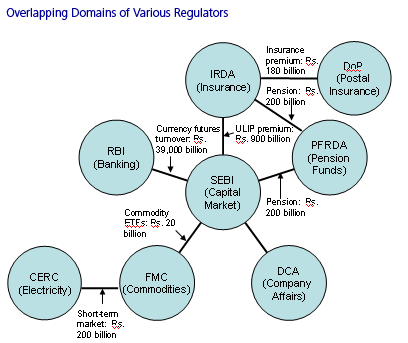Capital Market Regulation in India: Turf Wars Inevitable?
Abstract
Recent events related to Unit-Linked Insurance Plans (ULIPs) in India have highlighted the need for a mechanism that ensures proper coordination between the various financial market regulators without hampering the smooth operation of the markets.
In a new report, Capital Market Regulation in India: Turf Wars Inevitable?, Celent analyzes the role of various regulators in the Indian financial markets across banking, capital markets, insurance, pension funds, and commodities. The report looks at the various recent overlaps of jurisdiction and discusses possible ways in which these can be minimized, if not avoided altogether.
In India, regulators for the capital markets (1992), insurance (1999), and pension funds (2003) have all come into being in the past two decades and are operating in fast-growing markets. This has resulted in a lack of clarity regarding the domains of the various regulators. The PFRDA Act (relating to pension funds) and FCRA Amendment Bill (for the commodities market) have been on the back burner for some time because there has not been sufficient political will to tackle these important issues. This has led to an uneven playing field, with some regulators having powers required to regulate their respective markets and others waiting for a proper mandate to do so.

“The frequency and magnitude of the regulatory disputes mean that a workable solution to this issue needs to be found as quickly as possible, and political backing for any solution is as crucial as the expertise required to come up with it,” says Anshuman Jaswal, Celent Senior Analyst and author of the report.
The report looks at the recent regulatory developments in some of the leading global capital markets such as the US, the European Union, and the UK, besides other geographies. All of these markets have seen a lot of regulatory changes due to the recent credit crisis. The report also makes recommendations in areas such as improving coordination between regulators without having a super-regulator, use of fast-track courts to ensure quick resolution of conflicts, ensuring a level playing field between regulators, developing a consensus-building approach within the various sections of the financial markets, and finally harmonizing regulations across markets.

